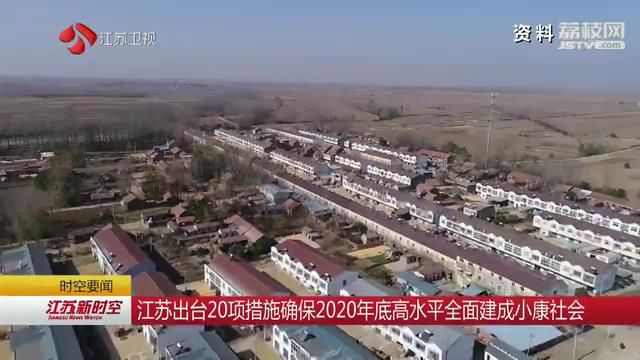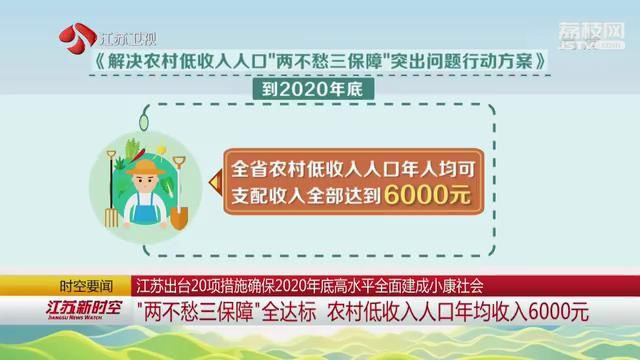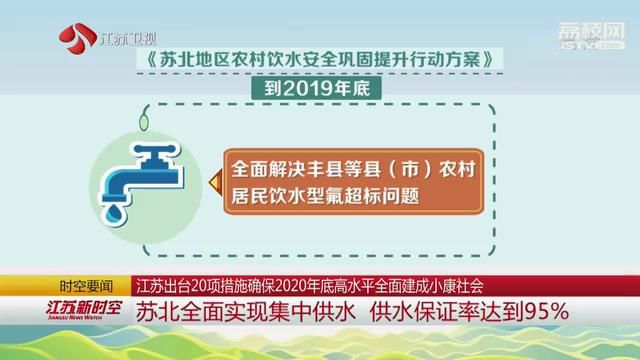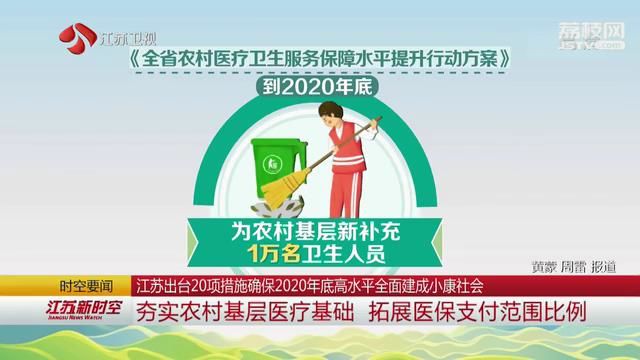East China’s Jiangsu province has released a policy document on making the final spurt for building a well-off society in an all-round way.

Jiangsu will spare no efforts to ensure that rural poor people are free from worries over food and clothing and have access to compulsory education, basic medical services and safe housing, according to the document.
The basic requirements and key indicators for poverty alleviation are that rural poor people are free from worries over food and clothing and have access to compulsory education, basic medical services and safe housing by 2020. Worries about food and clothing have been generally addressed, while securing access to compulsory education, basic medical services and safe housing remains weak, the article says, noting that tasks must be completed on time, the document said.

More efforts will be made to ensure that the dropout rate will be kept under control so that no children from low-income families will drop out of school because of poverty, all the low-income rural people will be included under the urban-rural resident basic medical insurance umbrella, the annual per capita income for the rural low-income people will reach 6000 yuan and all the dilapidated houses in the rural areas will be renovated.

Jiangsu will also make unremitting efforts to ensure that as many rural people as possible will have access to the supply of tap water. The urban water supply pipelines will be extended into the rural areas. By the end of 2019, the province will have removed the excessive fluoride content in drinking water in Fengxian County. 111 rural water works will be shut down by the end of 2020 to ensure that tap water is supplied to 95% of the rural households.
A toilet revolution will get underway across the rural areas while domestic sewages and wastes will be disposed of in a non-hazardous way.
95% of the rural toilets will measure up to the standards by the end of 2020. 60% of the administrative villages will have access to domestic sewage treatment facilities. 98% of the domestic garbage will be collected and treated. 85% of the livestock manure will be recycled for comprehensive use.
In the meantime, Jiangsu will make greater efforts to vigorously implement rural compulsory education resource construction and school standardization construction projects and control the dropout rate so as to ensure that by the end of 2020, rural compulsory education schools will basically meet the requirements for running schools.

The provincial authorities will do its utmost to integrate regional medical and health resources, further consolidate grassroots foundations, and enhance rural medical and health service capabilities. 10000 medical workers will be supplemented to the rural areas by the end of 2020. 90% of the medical consultation will be made within the county. 98% of the rural residents will be covered by medical insurance.





